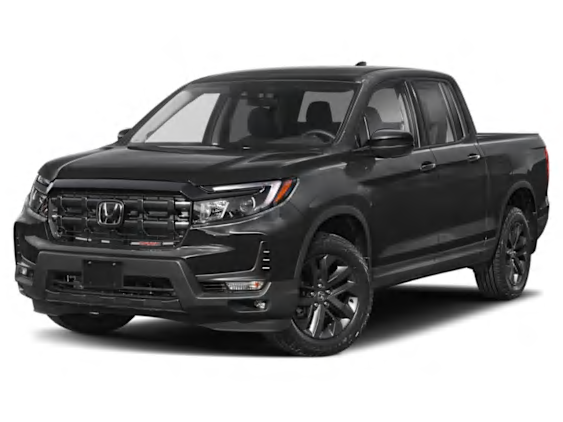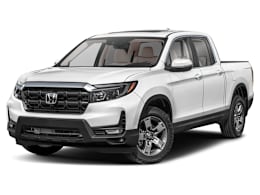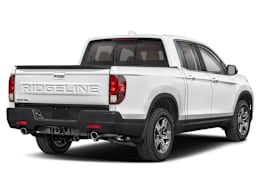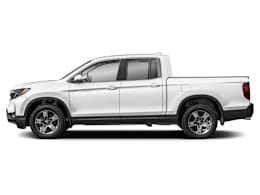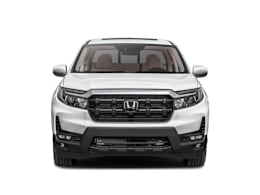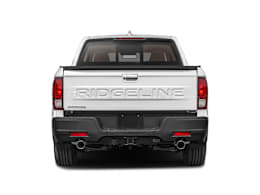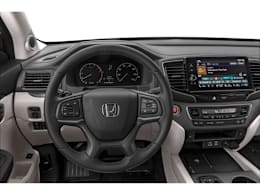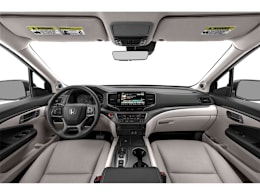With the Ridgeline, Honda has evolved the concept of the pickup, creating a smart, car-based truck aimed squarely at the actual needs of most pickup owners. The second-generation Ridgeline looks much more conventional than the original Ridgeline and remains sensible. Other car-based trucks have since emerged, but the Ridgeline remains one of the most civilized pickup trucks we've ever tested.
But it isn't a conventional workhorse. Towing capacity at 5,000 pounds is nothing to boast about. The bed is shallow. The Ridgeline is no off-road champ, so this isn't the truck for anyone planning to cross the Rubicon Trail. Payload capacity of 1,584 pounds is comparable to other compact pickups and a couple of hundred pounds less than full-sized trucks. On top of these modest credentials, the Ridgeline doesn't project the same indestructible image as other pickups. Instead of evoking frontier-taming fantasies, the Ridgeline aims right at your rationale. And rational it is. The composite bed will never rust and is scratch-resistant. The built-in trunk is weathertight, will hold more than just a toolbox, and is lockable. The rear gate can either swing out like a door or open like any other truck.
Unlike conventional trucks—and like all cars and most modern SUVs—the Ridgeline is built as a unified construction rather than a body bolted to a separate frame. Also, the cab and bed are one piece rather than two separate entities that are bolted together.
Unlike traditional trucks, the Ridgeline has independent suspension front and rear. This format gives the Ridgeline a comfortable and composed ride, which makes it feel more like driving a car rather than a rough-and-tumble truck. The Ridgeline is also very quiet inside, which goes a long way toward making the vehicle feel substantial and upscale.
Honda's 3.5-liter V6 is a potent and pleasant powerplant. At 20 mpg overall in our tests, the Ridgeline is one of the most fuel-efficient trucks that's not diesel-powered.
While handling isn't particularly nimble, the Ridgeline's cornering capability is commendable.
Inside the cab, the Ridgeline benefits from a passenger car cabin and high-quality materials. Unfortunately, it also comes with Honda's previous generation, unintuitive touchscreen infotainment system.
We're pleased to see that blind spot warning, forward collision warning, and automatic emergency braking are standard on all trims.
Access is easy thanks to the SUV-like floor and roof height, rather than having a high step up into the cab of a traditional truck.
Ultimately, the Ridgeline may not satisfy every truck buyer or project the adventurous or rugged image some people want. But clearly, it is the right truck for those who are honest about their true needs and aren't afraid of thinking outside the box.
